


In India, the fees that a D2C (Direct-to-Consumer) brand needs to pay a quick commerce platform for listing their products can vary significantly based on the platform, the nature of the partnership, the product category, and specific contractual terms. Generally, quick commerce platforms take a combination of charges, which may include listing fees, commission on sales, delivery charges, and potentially advertising costs. However, the specific terms can be negotiated between the D2C brand and the platform.
Here's an overview of the potential fees a D2C brand might incur when listing products on a quick commerce platform:
The primary charge that a D2C brand pays to a quick commerce platform is the commission on sales made through the platform. This commission typically ranges between 15% and 30% of the sale price of the product.
Example: If the D2C product sells for INR 500, the platform might take a commission of 20%, which would amount to INR 100 per sale.
Commission Range:
Lower commission rate (for bulk, FMCG products): 15%-20%
Higher commission rate (for premium or niche products): 20%-30%
Quick commerce platforms typically handle last-mile delivery, and the D2C brand might be required to pay for this service. The cost for delivery can vary based on the platform, the size and weight of the product, and the geographic location of the customer.
Some platforms such as Swiggy Instamart, Blinkit, and Zomato Instant might charge a fixed delivery fee per order, while others may charge a percentage of the sale value or vary based on distance.
Fixed Delivery Fee: INR 50 to INR 100 per order.
Percentage-Based Fee: For example, 5% of the sale price (which is typical for many quick commerce platforms).
Note: In some cases, the D2C brand might offer free delivery to customers as part of a promotion, in which case the brand will absorb the delivery cost.
Some quick commerce platforms charge a listing fee for brands to feature their products on the platform. This fee can be either a one-time payment or an ongoing fee, depending on the agreement. However, listing fees are generally more common on platforms that provide enhanced visibility or promotional support.
Fixed Fee Range: INR 10,000 to INR 50,000 per product (or per category).
In some cases, platforms may not charge a listing fee but will instead rely on commission-based revenue sharing.
Many quick commerce platforms offer brands opportunities for in-app promotions, featured listings, or discount campaigns to increase product visibility and drive sales. While these promotions are optional, they can increase sales significantly, especially if the product is featured during peak times.
Advertising or Marketing Fees: These can vary widely and might be based on factors like:
Campaign Duration: Fixed amounts or variable costs depending on campaign length.
Placement on Platform: Promoted listings or sponsored ads typically cost more. Fees could range from INR 5,000 to INR 50,000+ per campaign.
Discount/Deal Contribution: Sometimes platforms offer deals or discounts on products in exchange for a discount share (e.g., if a brand runs a 10% discount, the platform may ask the brand to absorb 50% of the discount).
Some quick commerce platforms such as Swiggy Instamart or Blinkit may also offer warehousing services where brands store their products in the platform's fulfillment centers. This service allows quicker delivery but comes with an associated cost.
Warehousing Fee: This can be based on product volume (per cubic meter) or per unit.
Per Unit Storage: INR 5 to INR 20 per unit, depending on the volume and type of product.
Monthly Storage Fee: INR 2,000 to INR 15,000 for a small-sized warehouse or storage space.
In addition to commissions and delivery charges, some platforms may also charge transaction fees related to payment processing. This is usually a small percentage (1-3%) of the transaction value and is to cover the cost of handling payments on the platform.
Transaction Fee Range: 1% to 3% of the transaction value.
If the platform allows returns or exchanges, they might charge the D2C brand a fee for handling returns. The fee structure for this varies depending on the platform, but the D2C brand might be responsible for absorbing some or all of the return costs.
Return Handling Fees: Typically, INR 30 to INR 100 per returned product, depending on the platform.
Let’s assume a D2C brand sells a product for INR 500 through a quick commerce platform.
Sale Price: INR 500
Commission (20%): INR 100
Delivery Fee: INR 50
Net Revenue per Sale: INR 500 - INR 100 (commission) - INR 50 (delivery) = INR 350
Additionally, let’s assume the D2C brand pays an advertising fee of INR 5,000 for increased visibility or a promotion for the month and is storing products at the platform's warehouse at INR 10 per unit. If they sell 500 units in a month, the cost breakdown will look like:
Listing Fee (if applicable): INR 10,000 (if charged by platform for premium visibility)
Advertising Fee: INR 5,000
Warehousing Fee: INR 10/unit x 500 units = INR 5,000
Total Fixed Fees for the Month: INR 20,000
If the brand sells 500 units in a month, they will need to cover the following costs:
Total Revenue from Sales: INR 500 x INR 350 = INR 1,75,000
Total Fees (commission, delivery, warehousing, etc.): INR 20,000 (listing, advertising, warehousing)
Net Revenue: INR 1,75,000 - INR 20,000 = INR 1,55,000
In this example, the brand generates INR 1,55,000 after all costs.
As quick commerce continues to grow in India, more and more D2C brands are recognizing the value of this model. Through partnerships with q-commerce platforms, these brands are scripting a different growth story in the competitive D2C space.


ⓒCopyright 2024 The CEO Post . All rights reserved